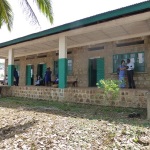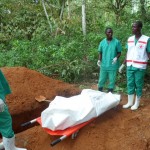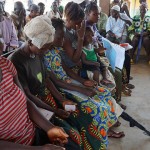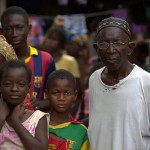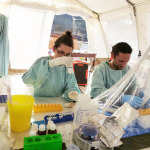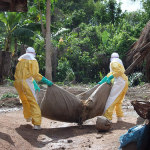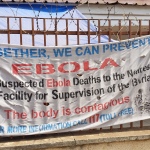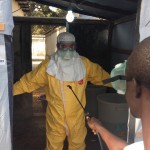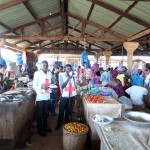Ebola Virus Disease (EVD) home deaths occur as the result of infected persons not being detected early and sent to Ebola Treatment Units (ETU) where they can access care and have an improved chance of survival. From a public health standpoint, EVD deaths should not occur at home. Individuals suspected of being infected with EVD should be identified through case investigations or contact tracing efforts and then referred to an ETU, thus decreasing their risk of dying as well as minimising the risk of exposing
Continue reading →
The Ebola outbreak in West Africa differed from others in its unprecedented size and the high proportion of human-to-human transmission occurring in the community. This report presents an analysis of the impact of Community Care Centres (CCCs) on communities in Sierra Leone. Much has been written about the leadership and coordination of the response – or the lack of it. The emphasis of this evaluation is on the views on the development, implementation and relevance of the CCCs from the perspective of the communities next
Continue reading →
It took the threat of a global health crisis to illustrate the failings of Africa’s health systems. Resilient health systems, free at the point of use, are evidently a global public good. They are essential for the provision of universal health coverage and for a prompt response to outbreaks of disease. Resilient health systems require long-term investment in the six key elements that are required for a resilient system: an adequate numbers of trained health workers; available medicines; robust health information systems, including surveillance; appropriate
Continue reading →
A component of the Ebola epidemic control policy in Sierra Leone is triage and isolation in decentralised Community Care Centres (CCCs) or Holding Units, from where transfer to Ebola treatment units (ETUs) is arranged for those diagnosed as positive. The epidemic is currently waning, there are sufficient beds in the ETU, yet new micro-epidemics emerge, raising questions about the future role and relevance of the CCC. This briefing summarizes the preliminary findings of a formative evaluation conducted by the UK based Ebola Response Anthropology Platform
Continue reading →
This study aimed to support Oxfam’s Public Health Promotion (PHP) strategy through a rapid qualitative assessment of the remaining social barriers to compliance with Ebola prevention and treatment messages. At the time of the study, most Liberians had a high awareness of Ebola prevention and treatment information. However, new infections continued to occur in “hot spots” around the country. A preliminary assessment suggested that negative perceptions and fear of Ebola response efforts contributed to non-compliance and resistance in some areas. Research activities assessed the sources
Continue reading →
The “selflessness of aid workers and medical volunteers” was praised both by the Queen in her Christmas message and by TIME magazine, who named ‘The Ebola Fighter’s their person of the year 2014. This emphasis on international staff, particularly doctors and nurses, gives a misleading impression about who is doing what in West Africa, and overlooks the huge contribution that national staff are making in their fight against ebola. Even when national staff are recognised, the focus again tends to be on the doctors and nurses, with some attention
Continue reading →
This report provides further output from an anthropological study of 25 villages affected by Ebola Virus Disease in eastern and central Sierra Leone, undertaken as part of the DFID-funded social mobilization initiative for Ebola prevention in Sierra Leone. Eight focus group transcripts for 3 villages in Kenema District are presented, covering local responses to health issues, and Ebola in particular. Supporting material from a matching questionnaire-based study of health behavior and perceived causes of Ebola is also provided. Of particular relevance are two summary tables
Continue reading →
